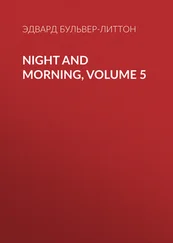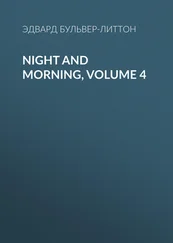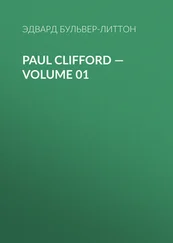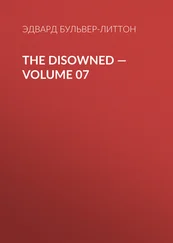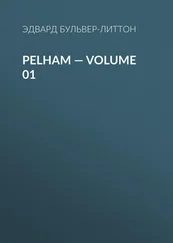Эдвард Бульвер-Литтон - What Will He Do with It? — Volume 08
Здесь есть возможность читать онлайн «Эдвард Бульвер-Литтон - What Will He Do with It? — Volume 08» — ознакомительный отрывок электронной книги совершенно бесплатно, а после прочтения отрывка купить полную версию. В некоторых случаях можно слушать аудио, скачать через торрент в формате fb2 и присутствует краткое содержание. Жанр: foreign_prose, literature_19, Европейская старинная литература, foreign_antique, на английском языке. Описание произведения, (предисловие) а так же отзывы посетителей доступны на портале библиотеки ЛибКат.
- Название:What Will He Do with It? — Volume 08
- Автор:
- Жанр:
- Год:неизвестен
- ISBN:нет данных
- Рейтинг книги:5 / 5. Голосов: 1
-
Избранное:Добавить в избранное
- Отзывы:
-
Ваша оценка:
- 100
- 1
- 2
- 3
- 4
- 5
What Will He Do with It? — Volume 08: краткое содержание, описание и аннотация
Предлагаем к чтению аннотацию, описание, краткое содержание или предисловие (зависит от того, что написал сам автор книги «What Will He Do with It? — Volume 08»). Если вы не нашли необходимую информацию о книге — напишите в комментариях, мы постараемся отыскать её.
What Will He Do with It? — Volume 08 — читать онлайн ознакомительный отрывок
Ниже представлен текст книги, разбитый по страницам. Система сохранения места последней прочитанной страницы, позволяет с удобством читать онлайн бесплатно книгу «What Will He Do with It? — Volume 08», без необходимости каждый раз заново искать на чём Вы остановились. Поставьте закладку, и сможете в любой момент перейти на страницу, на которой закончили чтение.
Интервал:
Закладка:
Edward Bulwer-Lytton
What Will He Do with It? — Volume 08
BOOK VIII
CHAPTER I
"A LITTLE FIRE BURNS UP A GREAT DEAL OF CORN."—OLD PROVERB.
Guy Darrell resumed the thread of solitary life at Fawley with a calm which was deeper in its gloom than it had been before. The experiment of return to the social world had failed. The resolutions which had induced the experiment were finally renounced. Five years nearer to death, and the last hope that had flitted across the narrowing passage to the grave, fallen like a faithless torch from his own hand, and trodden out by his own foot.
It was peculiarly in the nature of Darrell to connect his objects with posterity—to regard eminence in the Present but as a beacon-height from which to pass on to the Future the name he had taken from the Past. All his early ambition, sacrificing pleasure to toil, had placed its goal at a distance, remote from the huzzas of bystanders; and Ambition halted now, baffled and despairing. Childless, his line would perish with himself—himself, who had so vaunted its restoration in the land! His genius was childless also—it would leave behind it no offspring of the brain. By toil he had amassed ample wealth; by talent he had achieved a splendid reputation. But the reputation was as perishable as the wealth. Let a half-century pass over his tomb, and nothing would be left to speak of the successful lawyer the applauded orator, save traditional anecdotes, a laudatory notice in contemporaneous memoirs—perhaps, at most, quotations of eloquent sentences lavished on forgotten cases and obsolete debates—shreds and fragments of a great intellect, which another half-century would sink without a bubble into the depths of Time. He had enacted no laws—he had administered no state—he had composed no books. Like the figure on a clock, which adorns the case and has no connection with the movement, he, so prominent an or nament to time, had no part in its works. Removed, the eye would miss him for a while; but a nation's literature or history was the same, whether with him or without. Some with a tithe of his abilities have the luck to fasten their names to things that endure; they have been responsible for measures they did not not invent, and which, for good or evil, influence long generations. They have written volumes out of which a couplet of verse, a period in prose, may cling to the rock of ages, as a shell that survives a deluge. But the orator, whose effects are immediate—who enthralls his audience in proportion as he nicks the hour—who, were he speaking like Burke what, apart from the subject-matter, closet students would praise, must, like Burke, thin his audience, and exchange present oratorical success for ultimate intellectual renown—a man, in short, whose oratory is emphatically that of the DEBATER is, like an actor, rewarded with a loud applause and a complete oblivion. Waife on the village stage might win applause no less loud, followed by oblivion not more complete.
Darrell was not blind to the brevity of his fame. In his previous seclusion he had been resigned to that conviction—now it saddened him. Then, unconfessed by himself, the idea that he might yet reappear in active life, and do something which the world would not willingly let die, had softened the face of that tranquil Nature from which he must soon now pass out of reach and sight. On the tree of Time he was a leaf already sear upon the bough—not an inscription graven into the rind.
Ever slow to yield to weak regrets—ever seeking to combat his own enemies within—Darrell said to himself one night, while Fairthorn's flute was breathing an air of romance through the melancholy walls: "Is it too late yet to employ this still busy brain upon works that will live when I am dust, and make Posterity supply the heir that fails to my house?"
He shut himself up with immortal authors—he meditated on the choice of a theme; his knowledge was wide, his taste refined;—words!—he could not want words! Why should he not write? Alas; why indeed?—He who has never been a writer in his youth, can no more be a writer in his age than he can be a painter—a musician. What! not write a book! Oh, yes—as he may paint a picture or set a song. But a writer, in the emphatic sense of the word—a writer as Darrell was an orator—oh, no! And, least of all, will he be a writer if he has been an orator by impulse and habit— an orator too happily gifted to require, and too laboriously occupied to resort to, the tedious aids of written preparation—an orator as modern life forms orators—not, of course, an orator like those of the classic world, who elaborated sentences before delivery, and who, after delivery, polished each extemporaneous interlude into rhetorical exactitude and musical perfection. And how narrow the range of compositions to a man burdened already by a grave reputation! He cannot have the self- abandonment—he cannot venture the headlong charge—with which Youth flings the reins to genius, and dashes into the ranks of Fame. Few and austere his themes—fastidious and hesitating his taste. Restricted are the movements of him who walks for the first time into the Forum of Letters with the purple hem on his senatorial toga. Guy Darrell, at his age, entering among authors as a novice!—he, the great lawyer, to whom attorneys would have sent no briefs had he been suspected of coquetting with a muse,—he, the great orator who had electrified audiences in proportion to the sudden effects which distinguish oral inspiration from written eloquence—he achieve now, in an art which his whole life had neglected, any success commensurate to his contemporaneous repute;—how unlikely! But a success which should outlive that repute, win the "everlasting inheritance" which could alone have nerved him to adequate effort—how impossible! He could not himself comprehend why, never at a loss for language felicitously opposite or richly ornate when it had but to flow from his thought to his tongue, nor wanting ease, even eloquence, in epistolary correspondence confidentially familiar—he should find words fail ideas, and ideas fail words, the moment his pen became a wand that conjured up the Ghost of the dread Public! The more copious his thoughts, the more embarrassing their selection; the more exquisite his perception of excellence in others, the more timidly frigid his efforts at faultless style. It would be the same with the most skilful author, if the Ghost of the Public had not long since ceased to haunt him. While he writes, the true author's solitude is absolute or peopled at his will. But take an audience from an orator, what is he? He commands the living public—the Ghost of the Public awes himself.
"Surely once," sighed Darrell, as he gave his blurred pages to the flames—" surely once I had some pittance of the author's talent, and have spent it upon lawsuits!"
The author's talent, no doubt, Guy Darrell once had—the author's temperament never. What is the author's temperament? Too long a task to define. But without it a man may write a clever book, a useful book, a book that may live a year, ten years, fifty years. He will not stand out to distant ages a representative of the age that rather lived in him than he in it. The author's temperament is that which makes him an integral, earnest, original unity, distinct from all before and all that may succeed him. And as a Father of the Church has said that the consciousness of individual being is the sign of immortality, not granted to the inferior creatures—so it is in this individual temperament one and indivisible, and in the intense conviction of it, more than in all the works it may throw off, that the author becomes immortal. Nay, his works may perish like those of Orpheus or Pythagoras; but he himself, in his name, in the footprint of his being, remains, like Orpheus or Pythagoras, undestroyed, indestructible.
Читать дальшеИнтервал:
Закладка:
Похожие книги на «What Will He Do with It? — Volume 08»
Представляем Вашему вниманию похожие книги на «What Will He Do with It? — Volume 08» списком для выбора. Мы отобрали схожую по названию и смыслу литературу в надежде предоставить читателям больше вариантов отыскать новые, интересные, ещё непрочитанные произведения.
Обсуждение, отзывы о книге «What Will He Do with It? — Volume 08» и просто собственные мнения читателей. Оставьте ваши комментарии, напишите, что Вы думаете о произведении, его смысле или главных героях. Укажите что конкретно понравилось, а что нет, и почему Вы так считаете.

